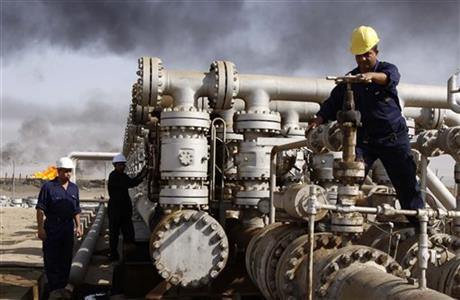Oil prices fall over 1 pct on rising Iraq output, strong dollar
SINGAPORE: Oil prices fell over 1 percent on Monday after the US dollar jumped, with markets pressured as Iraq's production rose and as Iran said it would only cooperate in talks to freeze output if fellow exporters recognised its right to fully regain market share.
Brent crude futures were trading at $49.22 per barrel at 0644 GMT, down 70 cents, or 1.4 percent, from their previous close.
US West Texas Intermediate (WTI) crude was down 75 cents, or 1.6 percent, at $46.89 a barrel.
Prices have fallen by almost 4 percent since their August peaks.
Traders said the price falls were a result of climbing output from the Middle East, where oil exports from Iraq's southern ports have averaged 3.205 million barrels per day (bpd) in August, exceeding the average level seen in July, according to two officials from state-run South Oil Company. Exports in July averaged 3.202 million bpd.
The traders said a strong US dollar following remarks on Friday by the Federal Reserve that an interest rate hike may happen this year also weighed on crude, as a strong greenback makes fuel purchases more expensive for countries using other currencies domestically.
Also weighing on prices were statements from Iran, which said late last week that it would only cooperate in upcoming producer talks in September if other exporters recognised Tehran's right to regain market share lost during international sanctions that were only lifted in January.
Analysts said disagreements within the Organisation of the Petroleum Exporting Countries (OPEC), and especially its key members Saudi Arabia and Iran, meant few expected a significant impact on global output from the talks.
"The market is increasingly likely to discount the outcome of the event, given, even in the instance of a freeze being agreed, compliance will be an issue," Barclays said.
Despite this, Barclays said that it saw "incoming oil market data (both demand and supply) as a source for price strength in Q4".
For now, the cheaper crude - the main feedstock for oil refiners - has helped lift refinery margins which have suffered from a fuel oversupply for much of this year.
Overall Singapore refinery margins, which are seen as a benchmark for Asia, have more than doubled since early August to over $6 per barrel, in part thanks to cheaper crude and also as a result of a tighter market due to refinery maintenance outages.






